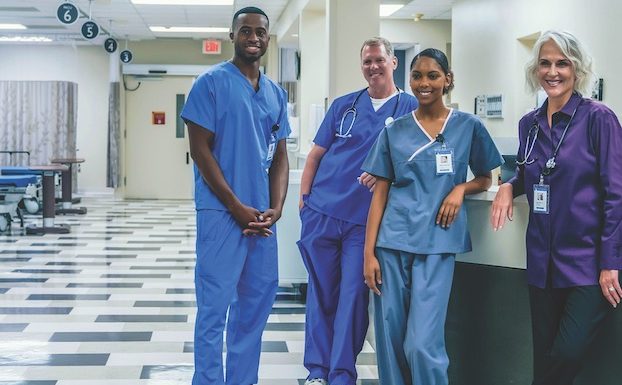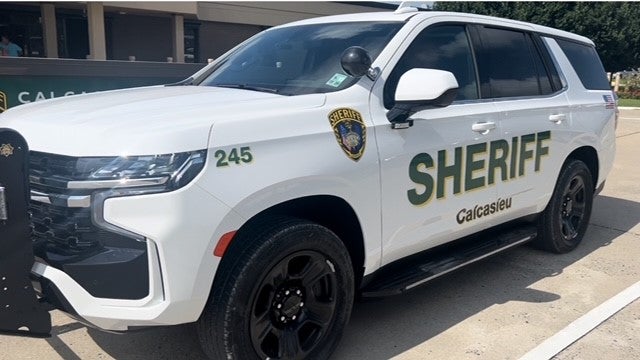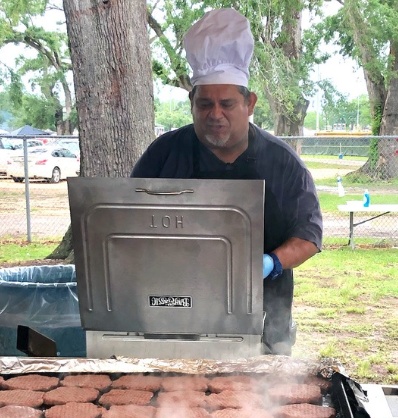A need for nurses: Shortage a confluence of several factors that have created ‘a perfect storm’
Published 11:42 am Tuesday, May 23, 2023

- At Memorial Health System as well as at other hospitals, attracting and retaining nurses is an ongoing process. (Metro Creative)
If nursing shortages continue on the current trajectory, the Health Resources & Services Administration’s (HRSA) Bureau of Health Workforce (BHW) projects a national shortage of 76,610 full-time equivalent RNs in 2025 and a shortage of 63,720 nurses in 2030. At Lake Charles Memorial Health System, there are an average of 80 vacancies that include various nursing-related titles, according to Shana Scales, vice president of human resources at Lake Charles Memorial Health System.
McNeese State University is graduating and placing nurses in many of those openings. “As far as I know, all our BSN graduates have received job offers,” said the Health and Nursing Interim Dean Ann Warner.
She calls the current shortage, the confluence of several factors that have created “a perfect storm.”
Baby boomers are aging, requiring more health care for more complex health issues, she said. That requires highly educated nurses. Baby boomers are also reaching the age of retirement from the workforce. Nurses are also moving into advanced practice roles such as nurse practitioner, nurse anesthetist and nurse midwife. The pandemic and natural disasters have placed additional stress on the health care workforce.
It’s not a new phenomenon, according to Gerald Bryant, chief operating officer and chief nursing officer at Memorial Health.
“Even before the COVID-19 pandemic, we were seeing a large percentage of nurses on the verge of retirement-age,” explained Bryant. “Of course, natural disasters, locally, and the overall strain that COVID-19 has led to where we are today. Additionally, we are seeing nursing school enrollment numbers decline. This will eventually impact us moving forward, as people move on to retirement and new nurses emerge. It’s up to us to encourage and inspire those with a natural inclination to help others pursue a career in healthcare.”
Each semester Warner asks incoming nursing students why they are entering the program. Most of them answer that they have been positively influenced by a nurse or nursing care they, a friend, or a family member received. Warner chose nursing because she wanted an engaging, hands-on profession with strong prospects.
Nursing is not for everyone. Some students are challenged by the program, but Warner said now more than ever, it is vital for nursing students to be prepared to care for the ill and aged when they graduate. Several decades of research demonstrate that health care agencies that hire higher proportions of BSN-prepared nurses have better patient outcomes. New graduates must pass a national exam to obtain licensure. The pass rate for McNeese NCLEX students has been 98 percent for the last five years for BSN students, according to Warner.
“A common motivation among nurses is the desire to help people, “ Jennifer Foreman said. She’s the director of Nursing Excellence and Education at Lake Charles Memorial Health System. “When new nurses realize the various challenges you face in the health care setting it can be a shock, initially. Nurses deal with a variety of behavioral issues from patients and family. This adds an extra, unexpected challenge to day-to-day patient care.”
Two who are fairly new to the nursing profession offer some insight. Nurse Amber Donovan has been working as a nurse for a year and had this to say about the extent of the mental, physical, and emotional toll of nursing: “I knew it would be hard, but I’ve always liked a challenge. However, unlike many professions the stakes are really high. Sometimes your actions and choices are the difference between life and death. It requires critical thinking and your 100% best for 12 hours continuously or more. Somedays even thinking about what to eat for dinner after work just feels like too much. Nursing school was just the beginning to a lifetime of learning. All summed up to say, it’s exhausting, but I don’t think there is a more fulfilling career. “
One positive surprise from Donovan’s first year nursing:
“The ‘nurses eat their young’ trope is outdated. There are so many seasoned nurses, physicians, and ancillary staff that want to share their knowledge and for you to learn and grow. They don’t let anyone struggle or drown in a heavy workload, the ‘sink-or swim’ mentality isn’t there. We succeed together, struggle together, laugh together, cry together, and grow together. The typical reason that most people pick this profession is ‘to help people,’ but I have found that this is not limited to patients but extended to staff. I have met and worked with some of the most intelligent, kind, and generous people. It is a privilege to know them and to be considered their coworker,” she said.
According to new nurse Wesley Vidrine, nurses have full work loads.
“I’d say the biggest surprise to me when I started working is the amount of tasks and orders that nurses are responsible for carrying out. During nursing school, we learn about caring for people and the disease processes, but seeing it in real life definitely takes it to another level. Being precepted, in the ICU during nursing school, helped prepare me for working there once I graduated. Nevertheless, even today, I learn something new each time I go into work,” he said.
Warner encourages any student interested in the field of nursing to find out as much as possible. Take advantage of healthcare summer camps and volunteer opportunities.
“Talk to nurses,” she said. “Read about nursing and become as prepared as possible in the sciences, writing and math. Skills in all these areas help students be successful in nursing programs.”
In Bryant’s career, he has noticed when there’s an economic downturn, or a threat of economic downturn, people tend to choose careers in fields that are secure, like nursing. “They recognize that nursing is an essential service. Some people choose nursing because it’s a viable job that offers job security, rather than choosing it because they want to care for others,” he said.
Attracting and retaining not only newly graduated nurses, but all generations of nurses is ongoing at Memorial.
“This brings inclusivity and various perspectives to our organization,” Scales said. “We are intentional about being forward-thinking in our recruitment. We want everyone to experience Memorial.”
Memorial has added to its various methods for applying for open positions and used other means to reach more people seeking a career that makes a difference. It is a health system with a commitment to offering one of the best total reward packages in the region.
“It couples our base wages with highly sought-after benefits and a culture of service and excellence,” Scales said.
The work culture has been elevated and Memorial has a new motto, “How we treat one another is just as important as the care we provide. We must take care of one another,” Foreman said. Nurses are more likely to stay in an organization if they feel supported by their team and by their leader. In my opinion, this is the best way to retain our nurses – and it’s working.”





